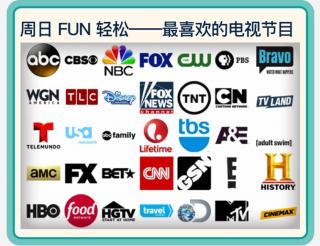
介绍:
A: What is your favorite TV program?
B: Well, I watch a lot, but the one I like best is “How It's Made”.
A: Is that an international TV program?
B: Yes, it is. It's available in Canada, Europe, Australia, New Zealand, Southeast Asia, and so on.
A: What is the TV program about?
B: Its name somehow describes the content, which is about the process of making things like lipsticks, balls, candy, toys, chocolate and so on.
A: How often do you watch that TV program?
B: Almost every day after dinner.
A: Who watches that program with you?
B: My family watches it together. My younger brother can't wait to turn on the TV.
A: What channel is it on?
B: A very common one, Discovery channel, which focuses on popular science, technology, and history.
A: Why do you like that TV program?
B: I love learning new things, especially about how everything is produced. I would love to run a business about hand-made cosmetics.
A: How does that TV program change you?
B: I know more about the world around me. It also supports me in my career path to make my dream come true.
A: Who is its target audience?
B: It particularly aims at families and younger audiences.
A: Would you recommend that TV program to your friends?
B: Yes, of course. They would be crazy about the program, I bet.
A:你最喜欢的电视节目是什么?
B:嗯,我看了很多,但我最喜欢的是《制造的原理》。
A:那是一个国际电视节目吗?
B:是的,它是。加拿大、欧洲、澳大利亚、新西兰、东南亚等地都能收看。
A:这个电视节目讲的是什么?
B:它的名字某种程度上说明了它的内容,是关于口红、球、糖果、玩具、巧克力等东西的制作过程。
A:你多久看一次那个电视节目?
B:几乎每天晚饭后都会看。
A:谁和你一起看那个节目?
B:我的家人一起看。我弟弟迫不及待地打开电视。
A:是在哪个频道?
B:很常见的一个频道,探索频道,主要是大众科学、科技、历史类的节目。
A:你为什么喜欢那个电视节目?
B:我喜欢学习新的东西,特别是关于一切东西的生产方式。我很想做关于手工化妆品的生意。
A:那个电视节目对你有什么改变?
B:我对周围的世界有了更多的了解。它也支持我在事业的道路上实现自己的梦想。
A:它的目标受众是谁?
B:它特别针对家庭和年轻观众。
A:你会向你的朋友推荐该电视节目吗?
B:是的,当然。我敢打赌,他们一定会非常喜欢这个节目。

